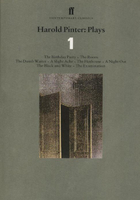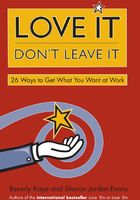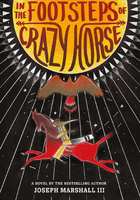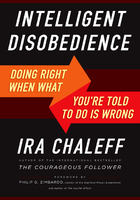I watched the greatest hour of dramatic television ever made in a hospital bed, heavily dosed with pain-killers and IV antibiotics, my wife and mother and stepfather gawking at me like I had lost my damn mind for insisting on not only watching, but reviewing, an episode of TV only hours after I nearly died from a burst appendix. Perfect circumstances, right?
As it turned out, the meds and sterile hospital atmosphere actually added to the experience of watching "Ozymandias," an episode so dark, so ugly, and so monumental in terms of the Breaking Bad story as a whole, that I at times found myself floating above the room like Jesse Pinkman once did under the influence of other drugs, asking myself, Did that really happen? Or is that the morphine talking? When the episode ended, I banged out a thousand semi-coherent words that were not destined for posterity (but which have nonetheless been reprinted here in an—ahem—appendix) while my family (who were watching this as their very first Breaking Bad episode—sorry, guys!) continued to look on with dismay at my insistence on doing anything but sleeping off the surgery and letting my body fight the infection that was still ravaging it.
By that point in the series, though, the only thing that would have prevented me from covering "Ozymandias" (and the two concluding episodes that followed) live would have been something worse than appendicitis. It wasn't just professional dedication making me do it, but a kind of fever equal to the one that, because the appendix burst before the doctors removed it, kept me hospitalized for almost two weeks. (This meant that I watched and reviewed "Granite State" under similar circumstances, and even got to discuss that episode's IV needle scene with my nurse immediately after, while she performed the same service for me that Ed had for Walt.) As both a critic and a fan, I had to see how this story was going to end, and I had to write down my thoughts on it all as soon as possible.
I had been obsessive about recapping on some level for a very long time, thanks in part to another high school teacher looking for a creative outlet beyond the classroom—one who fortunately found a healthier outlet than cooking meth.
When I first went online, as a college student in the early '90s, one of the most important writers I found was Timothy W. Lynch, a California teacher who in his spare time recapped the various Star Trek spinoffs for Usenet's rec.arts.startrek.current.[1]The idea of breaking down TV series not only on an episode-by-episode basis, but often on a subplot-by-subplot basis, was new and exciting to me, and I had Lynch's writing in the back of my head when an NYPD Blue fan on rec.arts.tv asked if anyone could provide a summary of the show's most recent episode ("Oscar, Meyer, Weiner" from season one), which they had missed. Inspired by Lynch, and looking for an excuse to not study for my finals, I obliged. People liked my write-up enough to ask if I could do that again the following week—many of them fans who had actually seen "Oscar, Meyer, Weiner," but felt the experience was enhanced by reading about it afterward. Soon I was recapping each episode of the series, providing both plot synopsis and analysis in every recap.
More than my grades, or even my work at the college paper, it was the writing about NYPD Blue that helped lead to my first job as a television critic for The Star-Ledger newspaper of northern New Jersey, where I would later go back to the recap format to cover a large swath of TV in the mid-to-late '00s, from The Wire to Battlestar Galactica to The Office. As had been the case back in the day with NYPD Blue, the recaps enhanced the experience of watching the shows themselves—whether I was simply reminding people of jokes or dramatic moments they had enjoyed, explaining why a particular story did or didn't work, or breaking down the deeper meaning of more ambitious shows like The Sopranos or Mad Men. If I cared about a show, I would find any excuse to write about it, and write about it, and write about it some more; never mind that getting back into recapping while I was still writing a daily newspaper column meant I was voluntarily doubling my own workload.
What's amazing about the confluence of "Ozymandias" and my burst appendix (beside the fact that I landed in a hospital that got AMC in high-def) is that when Breaking Bad debuted, I wasn't even sure if I liked the show, and couldn't have imagined a circumstance where I would literally be risking my health to recap an episode of it.
Back in that abbreviated first season, I didn't really know what to make of Vince Gilligan's vision, other than the amazing role he had written for Bryan Cranston and the revelatory work former sitcom star Cranston was doing as Walter White. In my initial review of it for The Star-Ledger, I wrote of the volatile combination Gilligan created, "I've seen three episodes, and while the show hasn't blown up yet, I still have no idea what it's going to look like when all the elements fully mix together." The series debuted while the TV business was in the midst of a programming drought due to the 2007–08 Hollywood writers strike, which offered me plenty of time to write as much as I wanted about the few original series still airing—yet I didn't even bother writing recaps for two of the seven Breaking Bad episodes that aired that year. The five recaps I did write were mostly brief attempts to puzzle out my feelings about a show that kept defying my expectations: Why are they spending two episodes just on getting rid of those guys they killed in the pilot? Is Bryan Cranston going to keep coughing this much? Am I supposed to care about anybody who isn't Walt? When will the story actually get going? Gilligan's pitch—"We're going to take Mr. Chips and turn him into Scarface"—was intriguing, but the execution wasn't at all what I expected, or what I thought I wanted.
When the second season debuted a year after the first ended, something had changed—as much with me as with Breaking Bad. The storytelling was more confident, but I was also more familiar with the pace and tone of it, and I had come to realize that the slowest moments were often the most important ones. Before the series began, I feared it would be a disappointment for AMC on the heels of the instantly brilliant Mad Men—but by the time the Cousins started crawling toward that shrine in Mexico at the start of season three, the story of Walter White had become every bit as audacious, riveting, and seemingly destined for the TV Hall of Fame as the adventures of Don Draper. By the end, it was a show that I wouldn't have missed writing about for anything—not even damaged insides, drugs, or stern warnings from the on-call nurse.
This book collects most of my writing about the series (including a second take on "Ozymandias" that I wrote a few months later, once I was healthier and more alert) from my days at the Ledger and then at HitFix.com (now archived at Uproxx.com). My thoughts on every episode are occasionally accompanied by memories from Gilligan, Cranston, and other members of the cast and creative team. In some cases, my recaps are similar to what was published online the night the episode aired, but have been polished with the benefit of hindsight and a much looser deadline. Other reviews have been heavily rewritten, and several episodes—that entire first season, the series finale, and a few others—prompted me to start over from scratch, either because my feelings now were different from the ones I had in the moment, or because I knew that an episode deserved better than I was able to give it at the time.
Because the essays in their original form were written one episode at a time, and were meant to be digested that way, this book follows that approach. If you're experiencing the show for the first time, it's safe to read along as you watch without fear of spoilers for what comes later (give or take the things Damon Lindelof mentioned in his foreword). And if you know Breaking Bad by heart, the reviews have been largely divested of whatever breathless speculation I was making at the time about what might come next, particularly in the (many) instances where I guessed wrong.
Consider this your supplemental textbook to the chemistry lesson that Gilligan, Cranston, and company are offering. Some essays are meant to enhance the emotional experience of what you just saw, others to analyze the deeper thematic meaning of an episode or praise a particularly brilliant piece of acting or directing. And a few are a chance to talk about the rare occasions when I feel the creative team misstepped. Along the way, we can analyze the transformation of Walter White—or argue about whether he really changed at all, or simply let circumstance unleash the man he always was inside—the unexpected rise of Jesse Pinkman, the complicated sympathy Skyler White elicits, and maybe even Walter White Jr.'s love of breakfast food.
Without further ado, let's have a chant of "YEAH, SCIENCE!" and start the class.
NOTES
[1]There were no blogs or comment sections online in the early '90s, and while message boards (or, as they were called back then, "bulletin boards") existed, most of them were restricted to your internet service provider, so that CompuServe users could only talk to other CompuServe users, Prodigy with Prodigy, etc. The significant democratized space at the time was Usenet, whose newsgroups had already been around for more than a decade, and allowed users across the globe to communicate with people who shared their interest in particle physics, advanced baseball statistics, or TV dramas.















